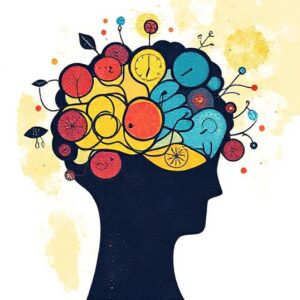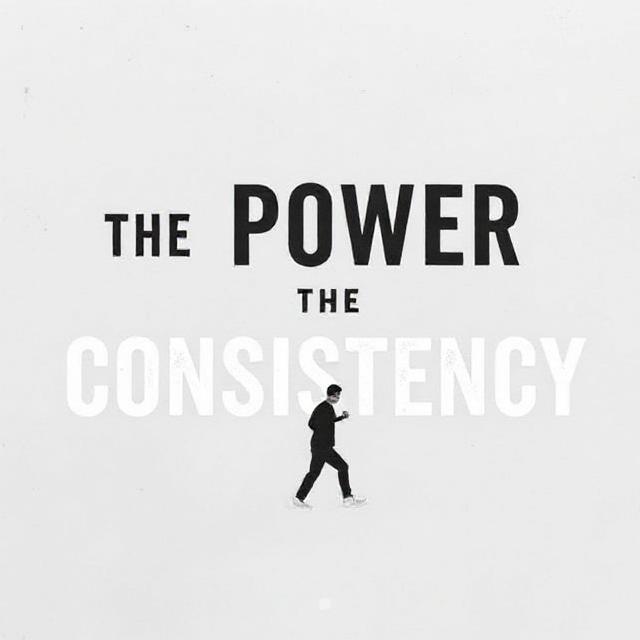
In a world where technical skills and academic knowledge are often celebrated, one powerful trait tends to go unnoticed—Emotional Intelligence (EQ). Yet, it’s the very ability that separates emotionally stable, self-aware, and influential individuals from those who constantly feel overwhelmed or misunderstood.
Whether you want to improve your relationships, become a better decision-maker, or simply gain control over your emotions, developing emotional intelligence is the foundation of lasting personal growth.
In this guide, we’ll explore what emotional intelligence truly means, why it matters, and how you can develop it step by step—with practical examples and real-life applications.
🎯 What Is Emotional Intelligence?
Emotional Intelligence is the ability to recognize, understand, manage, and influence your own emotions as well as the emotions of others. Unlike IQ, which is mostly fixed, EQ can be learned, improved, and mastered over time.
Emotional Intelligence Includes:
- Self-awareness – Knowing your emotions and their impact.
- Self-regulation – Controlling emotional reactions instead of acting impulsively.
- Empathy – Understanding how others feel, even when they don’t say it.
- Social awareness & communication – Handling social interactions smoothly.
- Motivation – Staying focused and emotionally aligned with your goals.
💡 Why Emotional Intelligence Matters in Real Life
You can be highly talented or educated, but without emotional control, communication skills, or empathy, you’ll struggle in relationships, career growth, leadership, and self-development.
Here’s how EQ transforms your life:
| Area of Life | With Low EQ 😟 | With High EQ 😎 |
|---|---|---|
| Stress Management | Reacts emotionally, burns out easily | Stays calm, responds mindfully |
| Relationships | Misunderstandings, arguments | Healthy communication & connection |
| Decision Making | Driven by emotion, regrets later | Balanced and thoughtful actions |
| Self-growth | Stuck in patterns, repeats mistakes | Learns quickly and adapts |
| Career & Leadership | Conflict with people, poor teamwork | Inspires, influences, and leads naturally |
Conclusion: Intelligence gets you in the room. Emotional intelligence keeps you respected in it.
🧭 Step 1: Build Deep Self-Awareness
Self-awareness is the foundation of emotional intelligence. You can’t control what you don’t notice.
Try This Daily Awareness Practice:
- Pause before reacting – Ask yourself, “What am I feeling right now?”
- Label your emotion – Angry? Embarrassed? Jealous? Disappointed? Naming it reduces its intensity.
- Trace the trigger – Why did this emotion appear? What story did your mind create?
💬 Example: Instead of saying “I’m angry,” say, “I feel ignored, and that made me frustrated.” This simple shift turns emotional chaos into clarity.
Journal Prompt:
“Today, I felt __ because __. Next time, I want to respond by __.”
🎛 Step 2: Master Emotional Control (Not Suppression)
People think emotional control means hiding emotions, but true EQ is about processing them intelligently.
Strategies to Improve Emotional Regulation:
- Take a breath before reacting – A 5-second pause can save a 5-year relationship.
- Shift your internal dialogue – Instead of “Why is this happening to me?” say “What is this trying to teach me?”
- Choose response over reaction – Emotions are data, not commands.
🎙 Life Tip: You are not your emotion. You are the observer of it.
❤️ Step 3: Develop Empathy – The Most Attractive Human Skill
Empathy is not about agreeing with everyone. It means understanding their emotional world without judgment.
Ways to Practice Empathy:
- Listen to understand, not to reply
- Watch body language and tone, not just words
- Ask emotionally deep questions like, “What made you feel that way?”
🎭 Empathy makes you more likable, trustworthy, and emotionally powerful—because people always remember how you made them feel.
🗣 Step 4: Improve Communication with Emotional Awareness
Most communication fails not because of words but tone, emotions, and timing.
Emotionally Intelligent Communication Tips:
- Don’t argue to win—communicate to understand
- Use “I feel” statements instead of blame
👉 Bad: “You never listen!”
✅ Better: “I feel unheard when I’m explaining something.” - Practice emotional timing – Some conversations need calm energy, not heated reactions
🧠 Rule: Speak from emotion, not in emotion.
🚀 Step 5: Use EQ for Self-Motivation & Growth
Emotionally intelligent people don’t wait for motivation—they create emotional alignment with their goals.
Build Emotional Discipline:
- Set goals based on purpose, not pressure
- Align your habits with how you want to feel, not just what you want to achieve
- When you feel stuck, ask: “What emotion is stopping me? Fear? Doubt? Laziness? Validation-seeking?”
🎧 Remember: Lack of productivity is often emotional, not technical.
🧠 Real-Life Example – Low EQ vs High EQ Reaction
| Situation | Low EQ Reaction 😡 | High EQ Reaction 🧘 |
|---|---|---|
| Someone disagrees with you | Feels attacked, argues | Stays calm, asks for perspective |
| You make a mistake | Feels shame, hides it or blames others | Accepts it, learns and moves on |
| Friend acts distant | Gets offended, assumes the worst | Asks if they’re okay, practices empathy |
| Stress hits | Complains or panics | Pauses, organizes thoughts, acts responsibly |
🔁 Daily Habits to Grow Emotional Intelligence
| Habit | Impact |
|---|---|
| Spend 5 minutes observing emotions | Builds self-awareness |
| Journal reactions instead of suppressing | Releases emotional pressure |
| Listen without interrupting someone | Trains empathy |
| Pause before reacting in conversations | Strengthens regulation |
| Reflect on emotional lessons weekly | Boosts personal growth |
🎙 Powerful Affirmations to Increase Emotional Intelligence
Repeat these with intention:
- “I respond with wisdom, not emotion.”
- “I understand before I react.”
- “My emotions are signals, not commands.”
- “I lead my emotions—they don’t lead me.”
🎯 Final Thought
Developing emotional intelligence is not a one-time achievement. It’s a lifestyle—choosing awareness over autopilot, compassion over ego, and response over reaction.
The more emotionally intelligent you become, the more peace, influence, and clarity you’ll experience in your life.
EQ is your true personal power. Master it, and you master your life.



